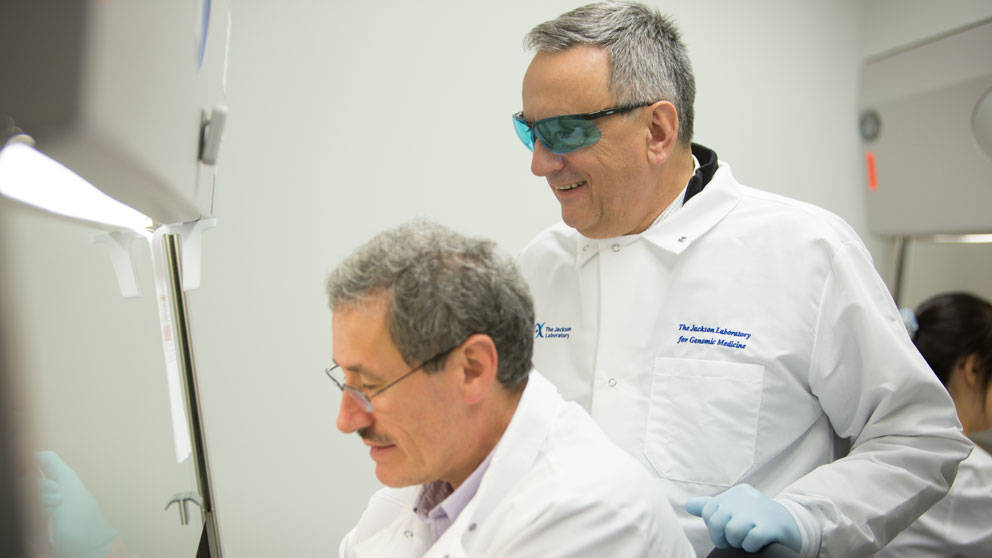
$3.4 million federal grant to The Jackson Laboratory to develop clinical adjuvants to boost vaccine effectiveness in elderly and immunosuppressed patients
Farmington, Conn. — The National Institute of Allergy and Infectious Diseases has awarded a grant totaling $3.4 million over five years to Jackson Laboratory Professor and Director of Immunological Sciences Jacques Banchereau, Ph.D., to develop new clinical adjuvants — agents that boost vaccine effectiveness — to better protect elderly and immunosuppressed patients.
In the U.S., an estimated 90 percent of deaths due to influenza are in people aged 65 and older. “Vaccines are essential public health tools that have protected countless individuals from illness and death due to infectious disease,” Banchereau says, “but many in use today provide insufficient protection, especially for older patients and those with compromised immune systems.”
Adjuvants are components of vaccines that are added to boost the immune response to vaccines, but, Banchereau notes, “few adjuvants have been proven safe and effective for use in humans. This new funding will allow us to screen new combinations of adjuvants in human immune cells, and to investigate their mechanisms of action, with the ultimate goal of discovering new combinations that boost the efficacy of vaccines and lead to new vaccine development.”
Adjuvant substances include liposomes, lipopolysaccharide, components of bacterial cell walls, and some forms of DNA. They generally stimulate innate immune response by mimicking a natural infection, and augment the activities of specific components of the immune system: dendritic cells, lymphocytes and macrophages.
The research team will focus their efforts on human dendritic cells, which facilitate the changes in T and B cells that provide subsequent immunity, searching for combination adjuvants that lead to enhanced immune response in vitro and in laboratory mice. They will work with industry partners to bring successful combinations to human vaccination trials.
Banchereau comments, “This project will leverage The Jackson Laboratory’s cutting-edge technologies, innovative mouse models, powerful computational and bioinformatics infrastructure, and the complementary expertise of a dynamic team of investigators.”
The Jackson Laboratory is an independent, nonprofit biomedical research institution based in Bar Harbor, Maine, with a National Cancer Institute-designated Cancer Center, a facility in Sacramento, Calif., and a genomic medicine institute in Farmington, Conn. It employs 1,800 staff, and its mission is to discover precise genomic solutions for disease and empower the global biomedical community in the shared quest to improve human health.
1U01AI124297-01: Combination adjuvants to activate human dendritic cell subsets and B cells